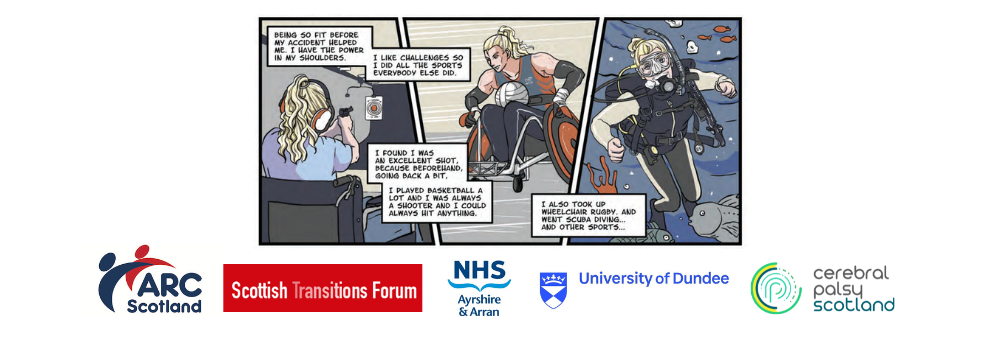Cerebral Palsy Scotland has worked in partnership with NHS Ayrshire and Arran, ARC Scotland and the University of Dundee to complete the first phase of a bigger project to develop neurology specific principles of good transition.
The project is funded by the Scottish Government through the Neurological Care and Support: A Framework for Action programme.
What does ‘transition’ mean?
ARC Scotland describes transition as, “not a single event but a process that unfolds over several years and involves significant emotional, physical, intellectual and psychological changes”. Examples could include: moving from child to adult health services, moving school or house, or starting a job.
Successful transition is dependent on a wide range of factors including: clarity of expectations; appropriate support and resources; sufficient planning; clarity of accountability; knowledge and skills; and capacity to plan for change and emotional and physical well-being.
Earlier research confirms that well supported transitions can lead to positive outcomes, inclusion, and a potential reduction in the long term use of health and social care services.
Why develop a neurology specific set of principles of transition?
Disease specific models of transition, such as epilepsy and diabetes, are also emerging and are aimed predominantly at transition from adolescence into adulthood. Such models, with a strong focus on the medical condition often fail to acknowledge concepts such as the construction or reconstruction of a self-identity. For those who develop a neurological condition in adulthood there is currently a lack of understanding of how transitions are understood and experienced. This is confounded by a lack of evidence to inform the nature of and the effectiveness of interventions used in practice to support positive transition experiences.
Development of a neurology specific set of principles, incorporating illness experience; developmental and lifespan transitions; and social and cultural transitions, embedded within a good practice framework could be applicable to people living with neurological conditions across all aspects of transition.
This could have significant and far reaching consequences for people living with a neurological condition, such as cerebral palsy, while facilitating working with key partners across sectors.
The development of generic pan-neurological principles of good transition across the lifespan will enable the better co-ordination of services that can address the complete medical, psychosocial, emotional and vocational needs of people with complex lifelong neurological conditions to enable the delivery of personalised care that is rights based and takes account of people’s experiences and choices.
Find out more
You can read the findings from the first phase of the project.
A comic version of the findings of the research are also available.
